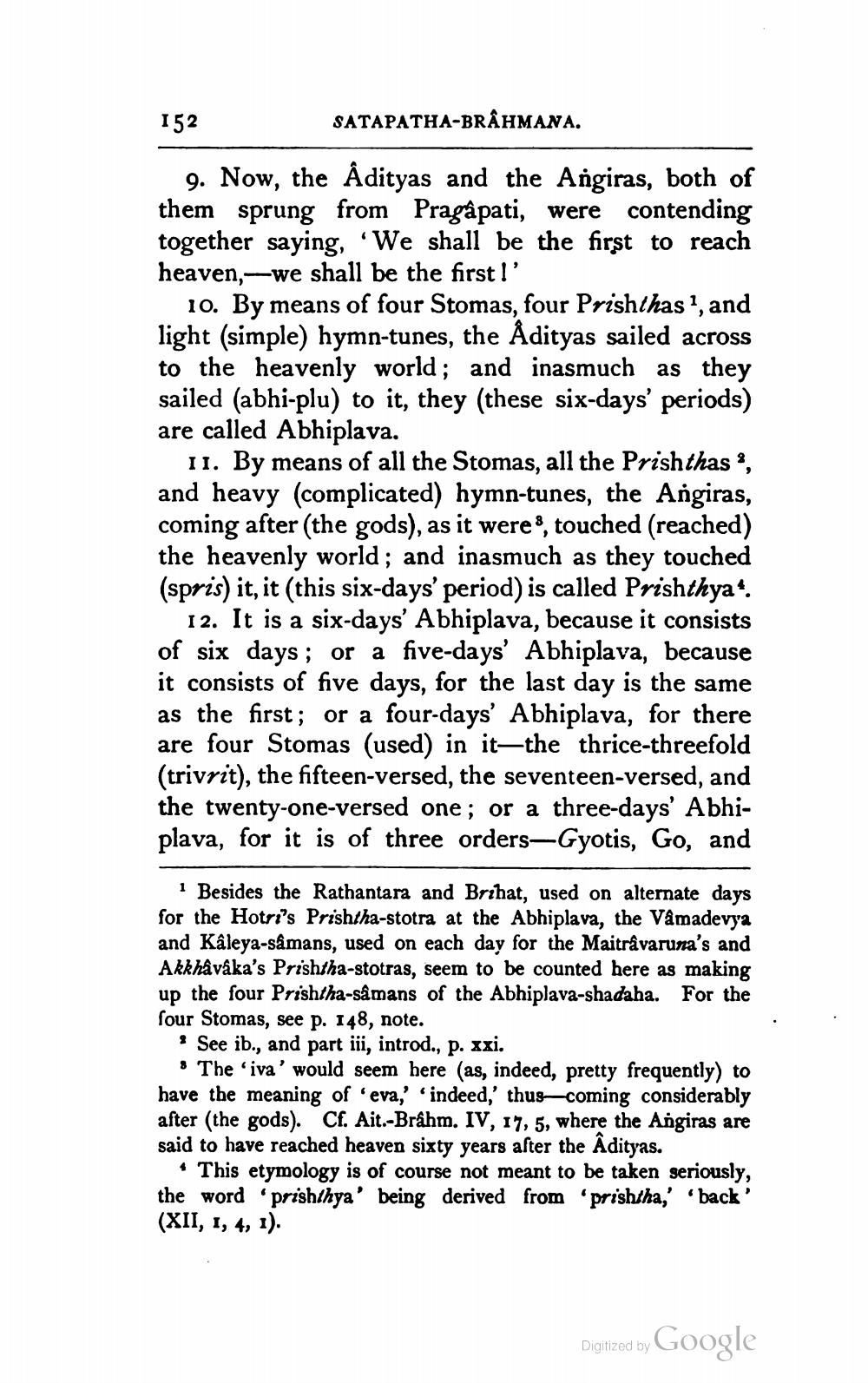________________
152
SATAPATHA-BRAHMANA.
9. Now, the Âdityas and the Angiras, both of them sprung from Pragâpati, were contending together saying, "We shall be the first to reach heaven,--we shall be the first!'
10. By means of four Stomas, four Prishthas ', and light (simple) hymn-tunes, the Ådityas sailed across to the heavenly world; and inasmuch as they sailed (abhi-plu) to it, they (these six-days' periods) are called Abhiplava.
11. By means of all the Stomas, all the Prishthass, and heavy (complicated) hymn-tunes, the Angiras, coming after (the gods), as it were, touched (reached) the heavenly world; and inasmuch as they touched (spris) it, it (this six-days' period) is called Prishthya".
12. It is a six-days' Abhiplava, because it consists of six days; or a five-days' Abhiplava, because it consists of five days, for the last day is the same as the first; or a four-days' Abhiplava, for there are four Stomas (used) in it—the thrice-threefold (trivrit), the fifteen-versed, the seventeen-versed, and the twenty-one-versed one; or a three-days' Abhiplava, for it is of three orders-Gyotis, Go, and
1 Besides the Rathantara and Brihat, used on alternate days for the Hotri's Prishtha-stotra at the Abhiplava, the Vámadevya and Kaleya-samans, used on each day for the Maiträvaruna's and Akkha vaka's Prishtha-stotras, seem to be counted here as making up the four Prishtha-samans of the Abhiplava-shadaha. For the four Stomas, see p. 148, note.
. See ib., and part iii, introd., p. xxi.
• The ‘iva' would seem here (as, indeed, pretty frequently) to have the meaning of 'eva,' indeed,' thus—coming considerably after (the gods). Cf. Ait.-Brahm. IV, 17, 5, where the Angiras are said to have reached heaven sixty years after the Adityas.
• This etymology is of course not meant to be taken seriously, the word 'prishthya' being derived from 'prishtha,' back' (XII, I, 4, 1).
Digitized by Google




